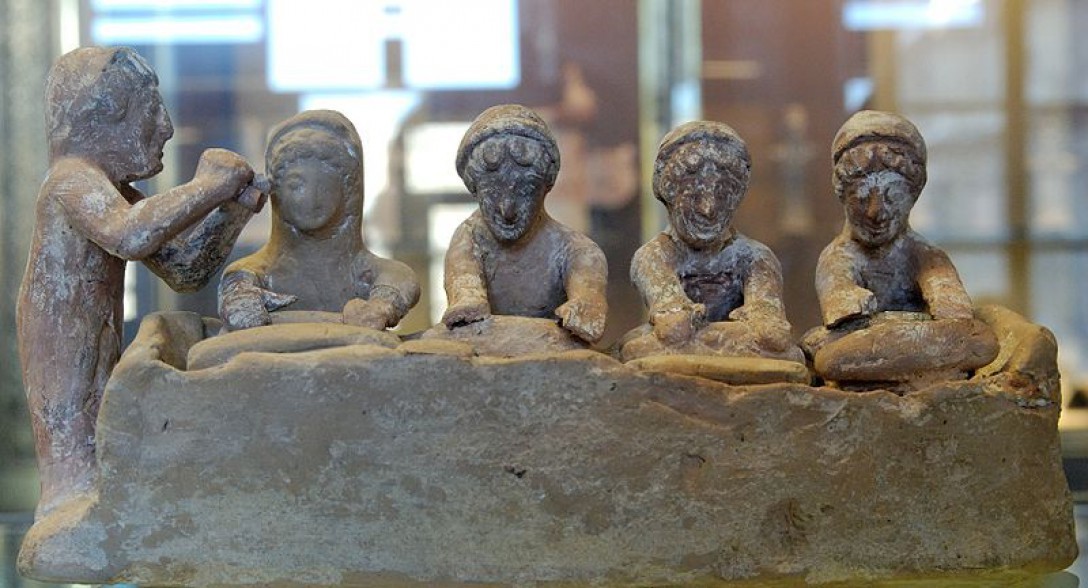One must sacrifice to the gods for three purposes: to give honor, to show gratitude, or because of one’s need of good things. (Theophrastus, On Piety, frag. 12, Potscher, 42-4). And in return, the ancient gods were pleased with the expressions of human gratitude (sacrifices, libations, offerings, dances etc.) to them.
This complex of ideas ‘ man asks, gods give, man gets and shows gratitude, gods are pleased’ is expressed in ancient greek with the term charis (χάρις). Charis means favor, a favor which is expected to be repaid. The idea of charis plays a particularly important role in Orhodox Christianity as well. That’s why the ‘oral’ statement becomes more prominent when there is an exchange between God or Saint and the offerer.
The photos are from St. Fanourios’ celebration (Kalamaki, Hania/Crete). As his name implies, Saint Fanourios reveals lost things, people, animals, even solutions to problems if one invokes his name (Fanourios < ancient greek verb Faino = reveal). The promised offering in return for Saint’s help is a sweet pie, a fanouropita. Sweet breads and cakes are important part of many Christian traditions and their origins are traced back in time. In ancient Greece they were a very common form of offering ; many different kinds of them are mentioned in ancient literature.
According to St. Fanourios’ custom, the pies are brought to the church (especially those dedicated to the Saint) where they are blessed by the priest.
After Mass, they are offered to the faithful.
Today, as in ancient times, these sweet offerings are not only objects which are given as gifts to the Saint but also unify the community, bringing it together for a solemn and also festive occasion.
(Not much is known about Saint’s life, except that his icon was discovered in Rhodes, around 1500 AD. The torture scenes on the icon shows Fanourios being stoned, in prison, being slashed, standing in front a Roman magistrate, tied to a frame, thrown to wild animals, crushed by a boulder, holding hot coals etc. According to one tradition that is not formally hold by the Church, the pies are also offered to grant rest to the soul of the saint’s immoral mother. St. Fanourios is commemorated on August 27th, the day his icon was found.)
FANOUROPITA
1 cup olive oil
1 cup sugar
2 cups orange juice
1/2 cup cognac
1 tbs lemon zest
1/2 cup black raisins
1/2 cup blonde raisins
1 1/2 cup walnuts roughly chopped.
1 tsp ground cinnamon, 1 tsp ground clove
4 cups flour, 1 tsp baking soda, 3 tsp baking powder
Beat the olive oil with the sugar until creamy. Add the baking powder dissolved in the cognac and the baking soda dissolved in the orange juice. Add the raisins and the walnuts, the cinnamon, the clove and the zest, beating all the time.
Add the flour slowly, beating until you have a thick batter.
Pour the batter into an oiled baking pan and bake in a moderate oven for +- 50 minutes. (recipe: Smaragda Desipri, 1920 -2005)






My maternal grandmother (Anna Kandilieri)lived in Galata and 14 years ago my mother moved from Chania to Daratso.
What’s your family surname?
Mariana – I’ve never been to the church, just past it, and have never had Fanouropita or been to St. Fanourios’ day. I just got excited when I saw the church, I didn’t realize you had connections to the area (my aunt, cousins, and grandparents still live in the area).
TFPassion, the cake is delicious!
T.Noodle, the word charity derives from Latin caritas = preciousness, esteem, affection. In Christian theology is used as translation of Gr.word agape= love -the unlimited love for all others. Charisma derives from the gr.word charis through the greek charisma =favor, divine gift.
Greeks make fanouropita also when they lose things, or during the Orthodox fasting periods, as it does not contain butter and eggs.
This easy cake is perfect with coffee or tea as well.
How fascinating! Is ‘charis’ the basis for the word ‘charity’? If so, the expectation of repayment would be interesting since its assumed that charity doesn’t require it. Is the cake made for other occasions as well? Thank you for sharing the recipe!
Very informative info. The cake sounds amazing!
Yes it is! Have you ever attended st. Fanourios’ celebration?
Is this church on the left-hand side of the hill as you go up from Kalamaki to Galatas? If so, it’s the church where my parents got married!